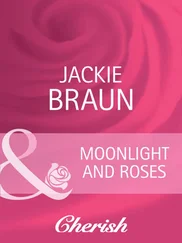Jack Lodon - Moon-face
Здесь есть возможность читать онлайн «Jack Lodon - Moon-face» весь текст электронной книги совершенно бесплатно (целиком полную версию без сокращений). В некоторых случаях можно слушать аудио, скачать через торрент в формате fb2 и присутствует краткое содержание. Жанр: Классическая проза, на английском языке. Описание произведения, (предисловие) а так же отзывы посетителей доступны на портале библиотеки ЛибКат.
- Название:Moon-face
- Автор:
- Жанр:
- Год:неизвестен
- ISBN:нет данных
- Рейтинг книги:4 / 5. Голосов: 1
-
Избранное:Добавить в избранное
- Отзывы:
-
Ваша оценка:
- 80
- 1
- 2
- 3
- 4
- 5
Moon-face: краткое содержание, описание и аннотация
Предлагаем к чтению аннотацию, описание, краткое содержание или предисловие (зависит от того, что написал сам автор книги «Moon-face»). Если вы не нашли необходимую информацию о книге — напишите в комментариях, мы постараемся отыскать её.
Moon-face — читать онлайн бесплатно полную книгу (весь текст) целиком
Ниже представлен текст книги, разбитый по страницам. Система сохранения места последней прочитанной страницы, позволяет с удобством читать онлайн бесплатно книгу «Moon-face», без необходимости каждый раз заново искать на чём Вы остановились. Поставьте закладку, и сможете в любой момент перейти на страницу, на которой закончили чтение.
Интервал:
Закладка:
The officials have begged me to keep this secret. I have done so, but can do so no longer. It has become a question of public import, fraught with the direst consequences, and I shall do my duty before I leave this world by informing it of its peril. Do you, John, as my last request, make this public. Do not be frightened. The fate of humanity rests in your hand. Let the press strike off millions of copies; let the electric currents sweep it round the world; wherever men meet and speak, let them speak of it in fear and trembling. And then, when thoroughly aroused, let society arise in its might and cast out this abomination.
Yours, in long farewell,
WADE ATSHELER.
THE SHADOW AND THE FLASH
When I look back, I realize what a peculiar friendship it was. First, there was Lloyd Inwood, tall, slender, and finely knit, nervous and dark. And then Paul Tichlorne, tall, slender, and finely knit, nervous and blond. Each was the replica of the other in everything except color. Lloyd's eyes were black; Paul's were blue. Under stress of excitement, the blood coursed olive in the face of Lloyd, crimson in the face of Paul. But outside this matter of coloring they were as like as two peas. Both were high-strung, prone to excessive tension and endurance, and they lived at concert pitch.
But there was a trio involved in this remarkable friendship, and the third was short, and fat, and chunky, and lazy, and, loath to say, it was I. Paul and Lloyd seemed born to rivalry with each other, and I to be peacemaker between them. We grew up together, the three of us, and full often have I received the angry blows each intended for the other. They were always competing, striving to outdo each other, and when entered upon some such struggle there was no limit either to their endeavors or passions.
This intense spirit of rivalry obtained in their studies and their games. If Paul memorized one canto of "Marmion," Lloyd memorized two cantos, Paul came back with three, and Lloyd again with four, till each knew the whole poem by heart. I remember an incident that occurred at the swimming hole—an incident tragically significant of the life-struggle between them. The boys had a game of diving to the bottom of a ten-foot pool and holding on by submerged roots to see who could stay under the longest. Paul and Lloyd allowed themselves to be bantered into making the descent together. When I saw their faces, set and determined, disappear in the water as they sank swiftly down, I felt a foreboding of something dreadful. The moments sped, the ripples died away, the face of the pool grew placid and untroubled, and neither black nor golden head broke surface in quest of air. We above grew anxious. The longest record of the longest-winded boy had been exceeded, and still there was no sign. Air bubbles trickled slowly upward, showing that the breath had been expelled from their lungs, and after that the bubbles ceased to trickle upward. Each second became interminable, and, unable longer to endure the suspense, I plunged into the water.
I found them down at the bottom, clutching tight to the roots, their heads not a foot apart, their eyes wide open, each glaring fixedly at the other. They were suffering frightful torment, writhing and twisting in the pangs of voluntary suffocation; for neither would let go and acknowledge himself beaten. I tried to break Paul's hold on the root, but he resisted me fiercely. Then I lost my breath and came to the surface, badly scared. I quickly explained the situation, and half a dozen of us went down and by main strength tore them loose. By the time we got them out, both were unconscious, and it was only after much barrel-rolling and rubbing and pounding that they finally came to their senses. They would have drowned there, had no one rescued them.
When Paul Tichlorne entered college, he let it be generally understood that he was going in for the social sciences. Lloyd Inwood, entering at the same time, elected to take the same course. But Paul had had it secretly in mind all the time to study the natural sciences, specializing on chemistry, and at the last moment he switched over. Though Lloyd had already arranged his year's work and attended the first lectures, he at once followed Paul's lead and went in for the natural sciences and especially for chemistry. Their rivalry soon became a noted thing throughout the university. Each was a spur to the other, and they went into chemistry deeper than did ever students before—so deep, in fact, that ere they took their sheepskins they could have stumped any chemistry or "cow college" professor in the institution, save "old" Moss, head of the department, and even him they puzzled and edified more than once. Lloyd's discovery of the "death bacillus" of the sea toad, and his experiments on it with potassium cyanide, sent his name and that of his university ringing round the world; nor was Paul a whit behind when he succeeded in producing laboratory colloids exhibiting amoeba-like activities, and when he cast new light upon the processes of fertilization through his startling experiments with simple sodium chlorides and magnesium solutions on low forms of marine life.
It was in their undergraduate days, however, in the midst of their profoundest plunges into the mysteries of organic chemistry, that Doris Van Benschoten entered into their lives. Lloyd met her first, but within twenty-four hours Paul saw to it that he also made her acquaintance. Of course, they fell in love with her, and she became the only thing in life worth living for. They wooed her with equal ardor and fire, and so intense became their struggle for her that half the student-body took to wagering wildly on the result. Even "old" Moss, one day, after an astounding demonstration in his private laboratory by Paul, was guilty to the extent of a month's salary of backing him to become the bridegroom of Doris Van Benschoten.
In the end she solved the problem in her own way, to everybody's satisfaction except Paul's and Lloyd's. Getting them together, she said that she really could not choose between them because she loved them both equally well; and that, unfortunately, since polyandry was not permitted in the United States she would be compelled to forego the honor and happiness of marrying either of them. Each blamed the other for this lamentable outcome, and the bitterness between them grew more bitter.
But things came to a head enough. It was at my home, after they had taken their degrees and dropped out of the world's sight, that the beginning of the end came to pass. Both were men of means, with little inclination and no necessity for professional life. My friendship and their mutual animosity were the two things that linked them in any way together. While they were very often at my place, they made it a fastidious point to avoid each other on such visits, though it was inevitable, under the circumstances, that they should come upon each other occasionally.
On the day I have in recollection, Paul Tichlorne had been mooning all morning in my study over a current scientific review. This left me free to my own affairs, and I was out among my roses when Lloyd Inwood arrived. Clipping and pruning and tacking the climbers on the porch, with my mouth full of nails, and Lloyd following me about and lending a hand now and again, we fell to discussing the mythical race of invisible people, that strange and vagrant people the traditions of which have come down to us. Lloyd warmed to the talk in his nervous, jerky fashion, and was soon interrogating the physical properties and possibilities of invisibility. A perfectly black object, he contended, would elude and defy the acutest vision.
"Color is a sensation," he was saying. "It has no objective reality. Without light, we can see neither colors nor objects themselves. All objects are black in the dark, and in the dark it is impossible to see them. If no light strikes upon them, then no light is flung back from them to the eye, and so we have no vision-evidence of their being."
Читать дальшеИнтервал:
Закладка:
Похожие книги на «Moon-face»
Представляем Вашему вниманию похожие книги на «Moon-face» списком для выбора. Мы отобрали схожую по названию и смыслу литературу в надежде предоставить читателям больше вариантов отыскать новые, интересные, ещё непрочитанные произведения.
Обсуждение, отзывы о книге «Moon-face» и просто собственные мнения читателей. Оставьте ваши комментарии, напишите, что Вы думаете о произведении, его смысле или главных героях. Укажите что конкретно понравилось, а что нет, и почему Вы так считаете.










